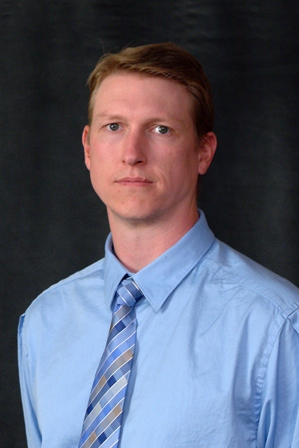
Neil Johannsen
Robert and Patricia Hines Endowed Professor
Bachelor's Degree(s): Chemistry, South Dakota State University, 1998
PhD: Health & Human Performance, Iowa State University, 2007
Phone: (225) 578-5314
Email: [email protected]
Office: 2144 HPL Field House
Biography
Neil M. Johannsen, PhD, is a Professor in the School of Kinesiology at Louisiana State University. In 1998, he graduated from South Dakota State University with a Bachelor of Science in Chemistry. His graduate training was conducted at Iowa State University where he obtained a PhD within the Department of Health and Human Performance in 2007 with a focus on the Biologic Basis of Exercise, in particular, exercise metabolism and physiologic responses to fluid intake during exercise. During his time at Iowa State University, he was awarded the Future Faculty Fellowship Award for demonstrating outstanding scholarship and promise for becoming a faculty member in higher education. From 2007 until 2012, he was at Pennington Biomedical Research Center as a Post-doctoral Researcher and later, an Instructor, in the Department of Preventive Medicine. His research focus at Pennington was the study of physical activity and exercise training effects on chronic disease and special populations where he played an integral role in more than 10 research studies involving populations ranging from young lean adults to older adults, overweight/obese people, individuals with type 2 diabetes, and women with a history of breast cancer. Dr. Johannsen remains on the Preventive Medicine team at Pennington as a Adjunct Assistant Professor.
Selected Publications
Johannsen NM, Sullivan ZM, Warnke NR, Smiley-Oyen AL, King DS, and Sharp RL. Effect of preexercise soup ingestion on water intake and fluid balance during exercise in the heat. Int J Sport Nutr Exerc Metab. 2013 Jun;23(3): 287-96.
Swift DL, Lavie CJ, Johannsen NM, Arena R, Earnest CP, O’Keefe JH, Milani RV, Blair SN, and Church TS. Physical activity, cardiorespiratory fitness, and exercise training in primary and secondary coronary prevention. Circ J 2013, Jan 25; 77(2): 281-92.
Myers VH, McVay MA, Brashear MM, Johannsen NM, Swift DL, Kramer K, Harris MN, Johnson WD, Earnest CP, and Church TS. Effects of three exercise training conditions on quality of life in sedentary men and women with type 2 diabetes mellitus. Diabetes Care, 2013 Jul;36(7): 1884-90.
Sparks LM, Johannsen NM, Church TS, Moonen-Kornips E, Moro C, Hesselink MKC, Smith SR, and Schrauwen P. Nine months of combined training improves ex vivo skeletal muscle metabolism in individuals with type 2 diabetes. J Clin Endo Metab 2013 Apr;98(4):1694-702.
Earnest, CP, Johannsen NM, Swift DL, Lavie, CJ, Blair SN, and Church, TS. Dose effect of cardiorespiratory exercise on metabolic syndrome in postmenopausal women. Am J Cardiology, 2013 Jun, 111(12):1805-11.
Senechal M, Swift DL, Johannsen NM, Blair SN, Earnest CP, and Church TS. The association of exercise training related changes in body composition and body fat distribution and fitness on the changes in hemoglobin A1C in individuals with type 2 diabetes: results from the HART-D study. Diabetes Care, 2013 May 13 [Epub].
Johannsen NM*, Sparks LM*, Zhang Z, Earnest CP, Smith SR, Church TS, and Ravussin E. Determinants of the improvement in glycemic control with exercise training in type 2 diabetes. PLoS One, 2013 Jun 8(6):e62973.
Johannsen NM, Lavie CJ, Swift DL, Earnest CP, Blair SN, and Church TS. Categorical analysis of the impact of aerobic and resistance training, alone and in combination, on cardiorespiratory fitness in patients with type 2 diabetes mellitus: results from HART-D. Diabetes Care, 2013 Oct; 36(10): 3305-12.
Swift DL, Johannsen NM, Lavie, CJ, Earnest, CP, Johnson, WD, Blair, SB, Church, TS, Newton Jr, RL. Racial differences in the response of cardiorespiratory fitness to aerobic exercise training in Caucasian and African American postmenopausal women. J Appl Physiol, 2013 May 15;114(10): 1375-82.
Allen JA, Robbins JL, VanBruggen MD, Credeur DP, Johannsen NM, Earnest CP, Pieper CF, Johnson JL, Church TS, Ravussin E, Kraus WE, Welsch MA. Unlocking the barriers to improved functional capacity in the elderly: rationale and design for the “Fit for Life Trial”. Concepts in Clinical Trials, 2013 Sept; 36(1): 266-75.
Swift DL, Staiano AE, Johannsen NM, Lavie CJ, Earnest CP, Katzmarzyk PT, Blair SN, Newton RL Jr, and Church TS. Low cardiorespiratory fitness in African Americans: a health disparity risk factor? Sports Med., 2013 Dec; 43 (12): 1301-13.